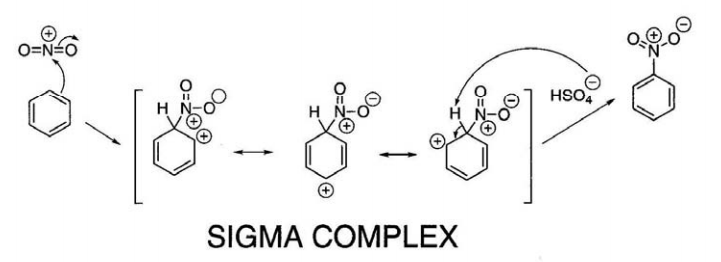I am told by Dr. Klein that in the nitration of benzene, hydrogen sulfate anion acts as the base and deprotonates the sigma complex.

My question is why would the hydrogen sulfate anion be doing the deprotonation? We've just established that sulfuric acid is a stronger acid than nitric acid; hence sulfuric acid is able to protonate nitric acid to some extent. Now are we expected to believe that the conjugate base of a stronger acid is stronger than the conjugate base of a weaker acid? Why not have nitrate anion do the deprotonation? It is a stronger base than hydrogen sulfate anion.
